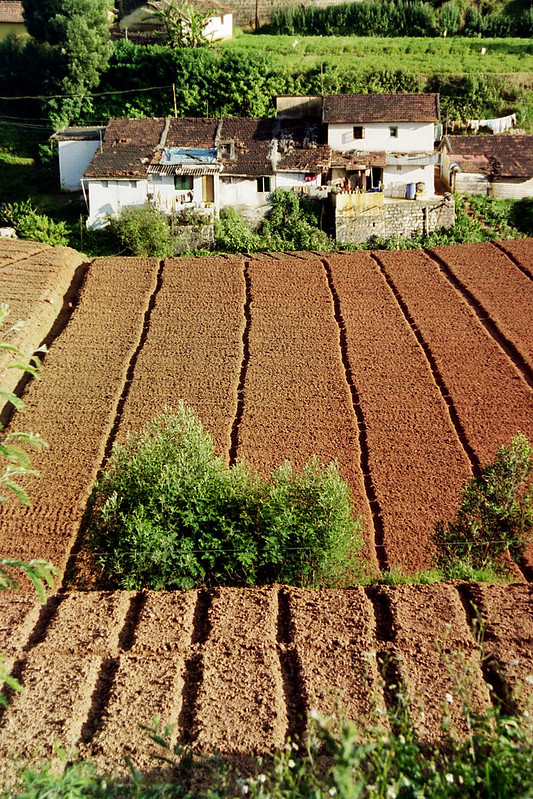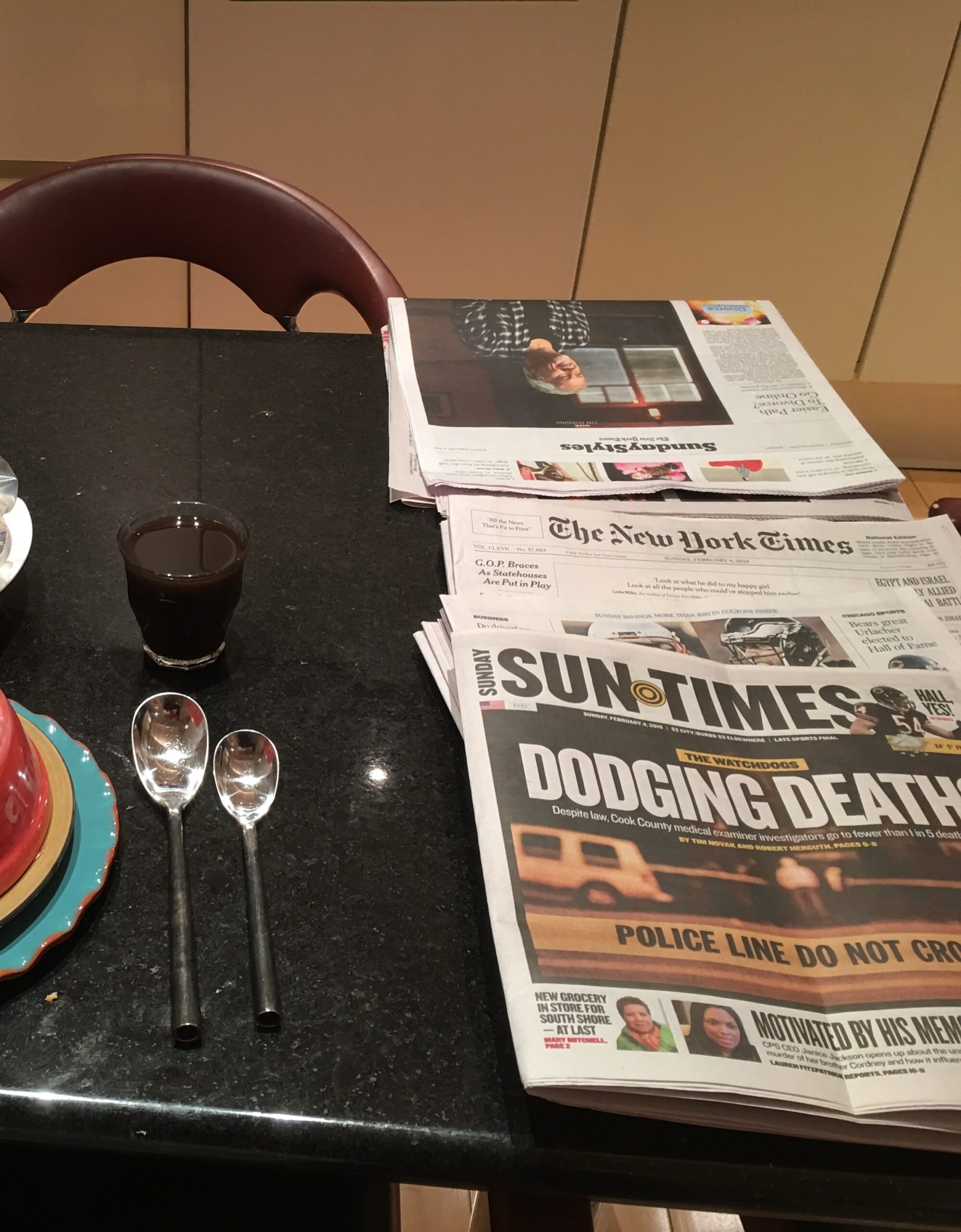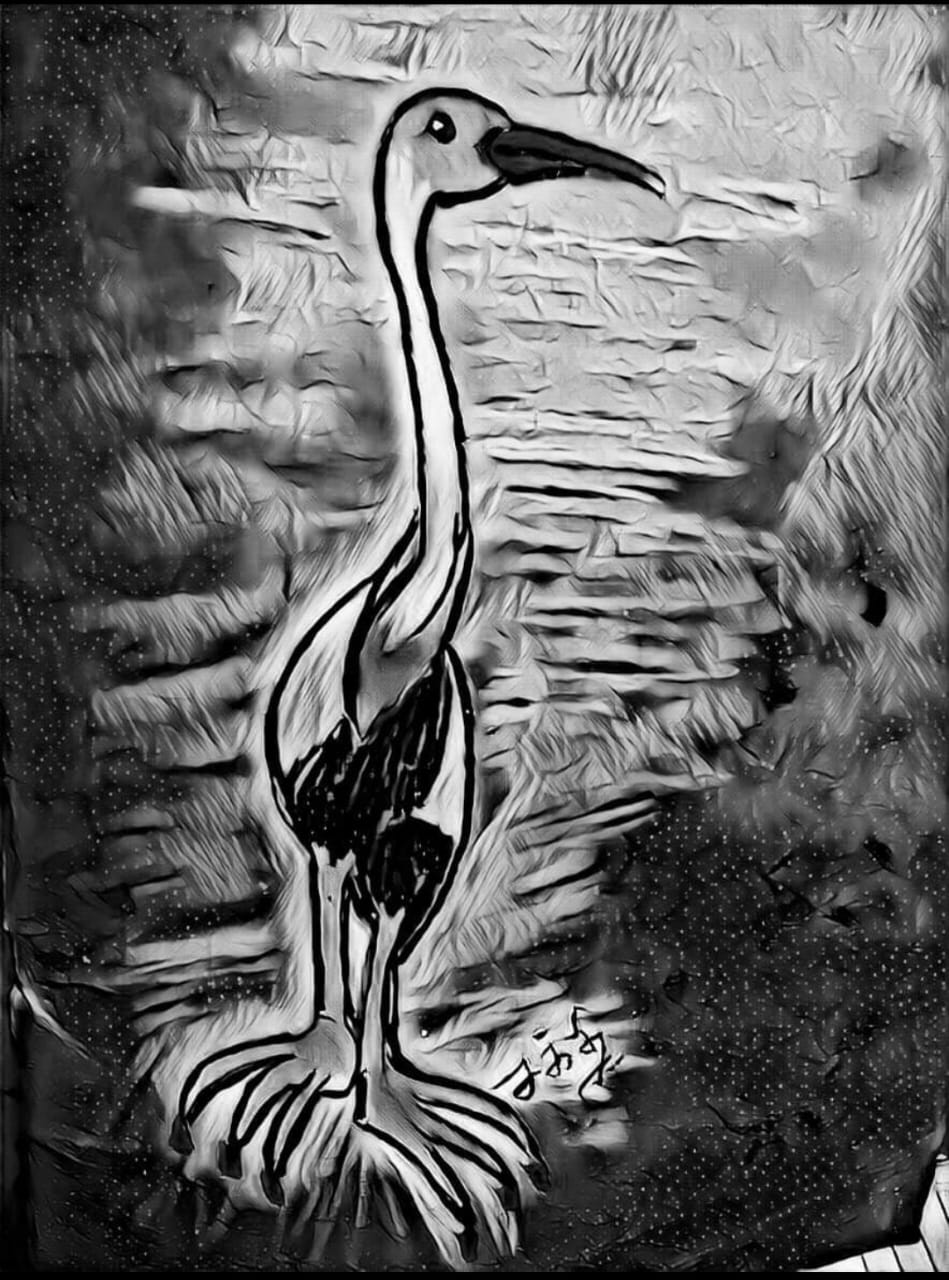By ROLF YNGVE
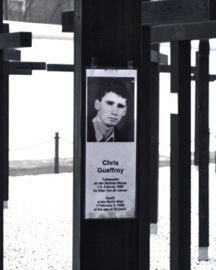
I told Christopher, the wall passed through here. We stood on the sidewalk and looked down at a plaque set into chic, new cobblestones.
Berliner Mauer 1961–1989.
We had walked down from the Brandenburg gate in the late fall with the linden trees bare, the citizens well-cloaked. A granular snow pricked our cheeks and sifted over the streets. Christopher had been two years old when the East German border guards shrugged their shoulders and opened the gates. Now he was eighteen and bored.
I told him, this is where the open field ran along the wall to give them a clear area to shoot people. He asked me, where were you? I was here in Germany. I studied at their war college, I told him. I saw this. I remember.
Part of the sentry station that had been Checkpoint Charlie remained in the middle of Friedrickstraße. Through the dirty windows of the white shack, you could see they had set up two dummy soldiers, one in the old soviet uniform, the other in a U.S. Army uniform, both shades of dull green. None of it looked real.
I told him that sometimes Americans could go back and forth between East and West Berlin. They made you get a visa and buy their currency. But the East Germans had to stay on their side, the West Germans on this side.
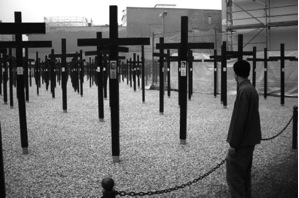
Christopher asked me, why did you bring me here?
I don’t know. It’s something to see.
That year, a temporary memorial took up a nearby vacant lot. A field of clean gravel had been laid down and populated with tall, thin crosses made of dark wood. On each, someone had scotch-taped pictures of those killed on the wall. I told my stepson, the last person killed was Chris Gueffroy, and I remember it. Everyone thought it was insane. He was young—twenty years old. All he wanted to do was get out of the draft. He could have waited. He could still be a bartender in Berlin. That’s a lesson for you, I told him.
You could be a bartender when you were only twenty years old?
Sure. It’s Europe.
We walked through all the crosses. There were more than a thousand. We went to get a beer in a kneiper we found on a side street. None of the good, old places were there, but this was a comfortable facsimile and a young woman was the bartender. She gave us pilsner from the tap, dropped it straight into the glass.
Christopher tried to drink it and came away with a face full of foam. This isn’t any good, he said.
Wait, I told him, you have to wait for the head to go down. The beer was in two stemmed glasses, and it was perfect to look at with its fat gold body under the dairy white.
He had my name, Christopher said. I’ll be twenty in three years.
He stared at his beer too long, then said, I couldn’t have waited either.
Rolf Albert Yngve’s writing has appeared or is forthcoming in Eclipse, Glimmer Train, Chattahoochee Review, the War Literature and the Arts Journal and The Indiana Review, where a story won the 2009 Indiana Fiction Prize.
Photos by Rolf Yngve

